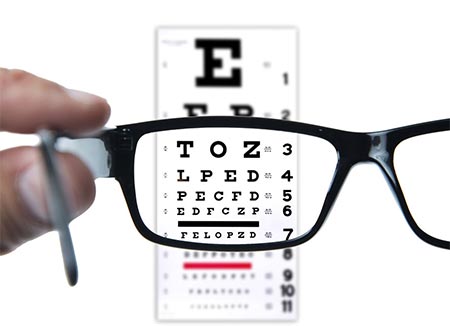This post stresses the importance of regular optometry appointments. It also informs the reader on various eye conditions that can arise as a result of poor visual health.

 It can be difficult to find time to spare for an eye test amidst your busy life, especially when you feel nothing is wrong. However, there are many benefits to regular eye screenings beyond new glasses.
It can be difficult to find time to spare for an eye test amidst your busy life, especially when you feel nothing is wrong. However, there are many benefits to regular eye screenings beyond new glasses.
Regular eye exams can identify and monitor more serious eye diseases. Conditions such as glaucoma, macular degeneration, cataracts, or diabetic retinopathy often display few symptoms visible to the naked eye before the disease has gotten incapacitating.
Glaucoma is especially difficult to catch without regular eye appointments. Individuals with Glaucoma have damaged optic nerves caused by a buildup of pressure behind the eye. Eyesight lost by damage to the optic nerve cannot be brought back. However there are various treatment options available to minimize the chances of further loss of sight, so it’s important to catch glaucoma early.
Eye exams can catch non-eye related ailments as well. The blood vessels the eye doctor can see during an eye exam are often reliable indicators of blood vessel health across the body. Patients sometimes see the first signs of conditions such as hypertension , hypercholesterolemia and most commonly diabetes during a routine eye exam. For those patients who are already aware that they have diabetes, regular eye exams are even more important to monitor eye health for signs of diabetic retinopathy, the leading cause of blindness in American adults (CDC).
In the early stages, the damaged blood vessels surrounding the retina begin to leak fluid, causing the retina to swell. Only in the later stages when the leakage enters the vitreous body, a jelly-like substance between lens and the retina, that serious vision damage can occur. If problems like these are caught in the early stages, it is much easier to halt sight decline.
Regular eye appointments are important for the young and the old. Many problems children may be experiencing at school can be traced back to poor vision. It can be quite challenging for children with visual impairments to learn at the same pace as their classmates. Approximately 80% of information is communicated visually in the classroom. Children’s eyes are still developing as well, and their prescriptions may change much quicker than adults, making yearly eye exams are imperative for elementary age children.
As we pass 40, as a function of aging, our eye health begins to decline. Conditions such as presbyopia, cataracts, and age-related macular degeneration can begin to show themselves and impact your everyday activities. Aproximalry 33% of us will have some form of vision reducing disease by the age of 65, however the severity of said condition will depend on when it is detected.
At the end of the day, we should consider our sight a precious gift and that we prioritize taking care of it. Our sight is not a given that we can ignore until something goes wrong. So go book that eye test you’ve been putting off, your future self will thank you.
________________________________________
Diabetic Retinopathy
HEALTHY EYES IMPORTANCE OF EYE EXAMS
Why are Eye Exams Important?
5 reasons eye exams are important
Correctable vision problems hinder learning for too many children
Vision and Learning Difficulties
Glaucoma- Web MD
Common Causes of Vision Loss in Elderly Patients
Written by MWP Staff: Isabella Harmel
